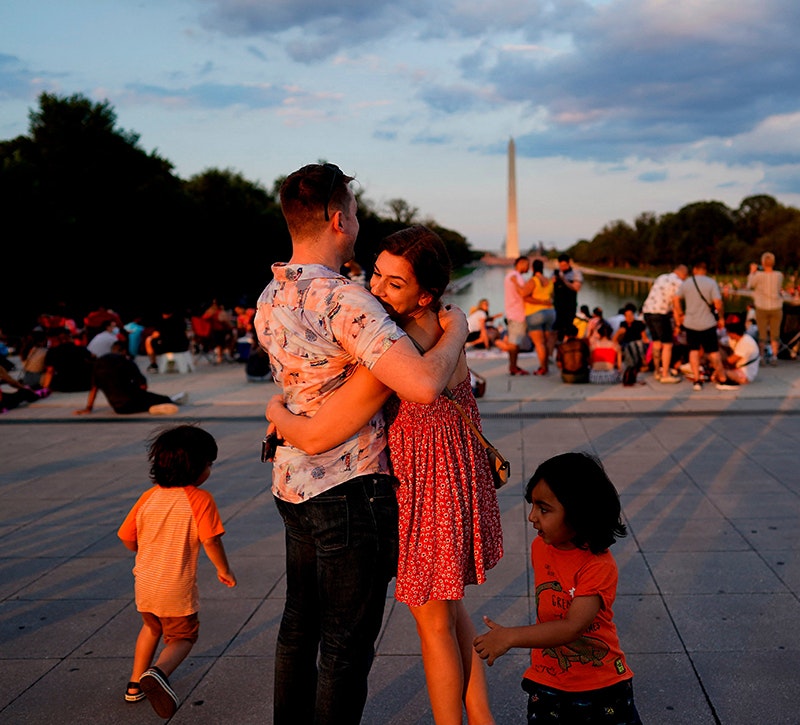Limiting the injunctions without explaining the Trump policy’s unconstitutionality would create chaos across the country
While all three cases involve the EO, the primary question before the Supreme Court involves the issuance of nationwide injunctions to stop the government from implementing it.
The Trump administration isn't even defending its radical constitutional theory in the Supreme Court—likely because it knows the argument would fail—and instead focused on the legality of nationwide injunctions. Such injunctions have been at the center of political debate in recent years across a variety of policy areas. Proponents argue that these injunctions are necessary to give complete relief to the plaintiffs and also to prevent harm to individuals beyond those named in the cases, especially in cases involving the federal Constitution. Critics argue that such injunctions go beyond the appropriate authority of district court judges and unlawfully limit the authority of the Executive Branch.
Indeed, the Trump administration has attempted to avoid any ruling by the Court on the legality of the executive order by challenging only the scope of the injunctions. That way, if the Court ends up narrowing the injunctions in any respect, the administration can falsely claim a win. The Supreme Court should not be complicit in enabling such a blatant abuse of power.
It is perfectly reasonable for the Supreme Court to rule on the legal principles governing issuance of nationwide injunctions. But limiting the relief in this case could result in nationwide chaos and enable the widespread infringement of core constitutional rights.
It would leave no nationwide standard for citizenship, producing tremendous uncertainty for families. Birth certificates could become meaningless for many families, with no clear system in place to verify or confirm a child’s citizenship. As one court warned, “Existing administrative systems will fail, states and localities will bear the costs of developing new systems for issuing birth certificates and verifying citizenship, and anxious parents-to-be will be caught in the middle.” If the Court limits the scope of relief so that it applies only to individual plaintiffs, some children born in a hospital would be entitled to citizenship but others born in the same hospital on the same day would not. Hospitals and state and local governments simply are not equipped to decide which newborns qualify as citizens and which do not.
This could also lead to children born in certain states being targeted for harassment by state and local law enforcement, and by the federal government, and denial of rights, protections, and benefits guaranteed to them—all based on a clearly unconstitutional theory about their citizenship status.
It could take years for the Supreme Court to fully consider and rule against this unconstitutional policy. In the meantime, there could be massive harm inflicted on U.S. citizens. A limited injunction would result in the precise evil the Clause is intended to prevent: it would divide similarly situated people into different classes, bestowing citizenship on babies whose parents have the resources and wherewithal to seek legal relief and withholding it from babies who are just as constitutionally entitled to birthright citizenship but whose parents are unable to pursue litigation. Such a result would fundamentally fracture the country. The Reconstruction Amendments were intended to prevent that sort of division from occurring again.
Even if the Court wishes to recognize limits on nationwide injunctions, it can and should affirm that nationwide relief is necessary here because of the serious constitutional violation, the need to provide complete relief to the plaintiffs, and the harm that would result from changing the long-standing status quo. The plaintiffs explain these reasons in detail in their Supreme Court filings, and multiple amicus filings by law professors provide further support. As one conservative law professor put it, “[n]ationwide lawbreaking by the federal government requires a nationwide remedy. And that's especially true if the illegality affects the rights of large numbers of people, many of whom could not easily or quickly bring individual suits to challenge it. Justice delayed – in some cases indefinitely – is justice denied.” Multiple business trade associations also filed an amicus brief supporting the legality and importance of nationwide injunctions.







